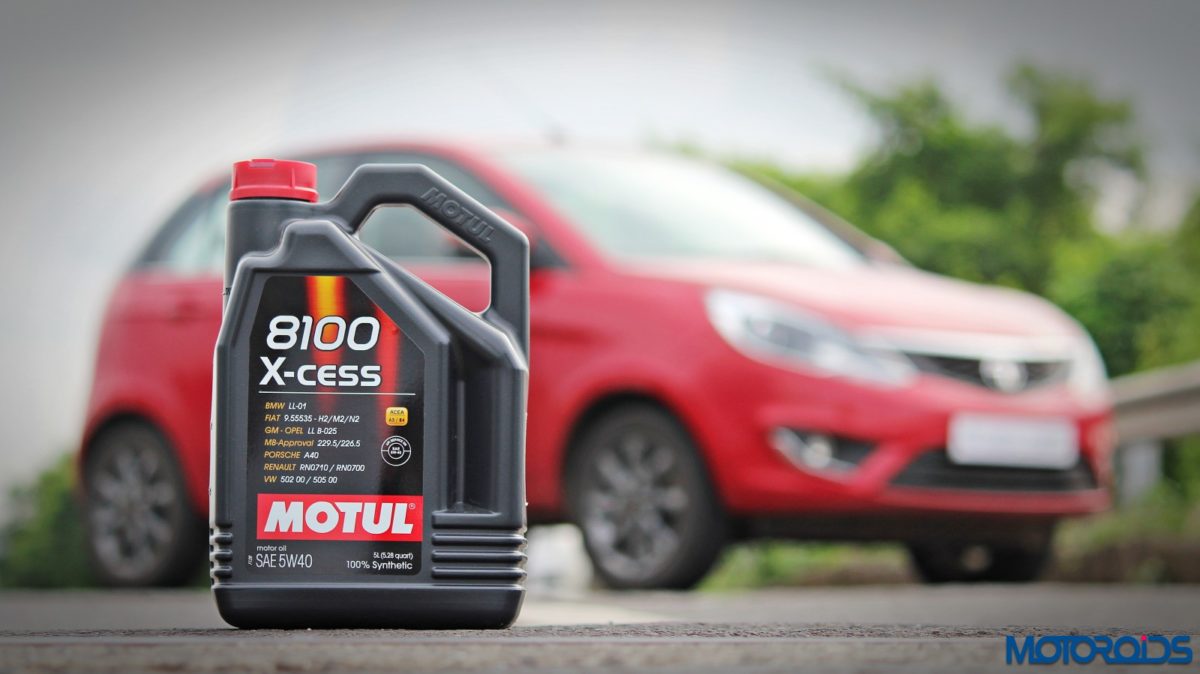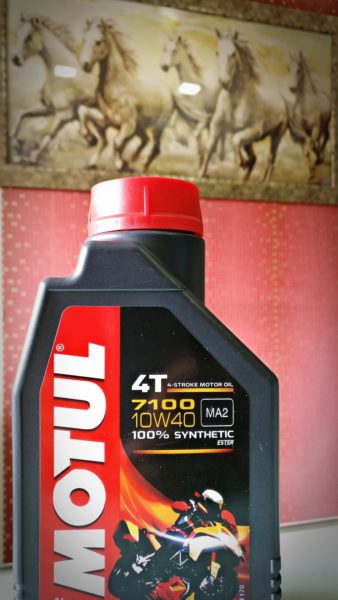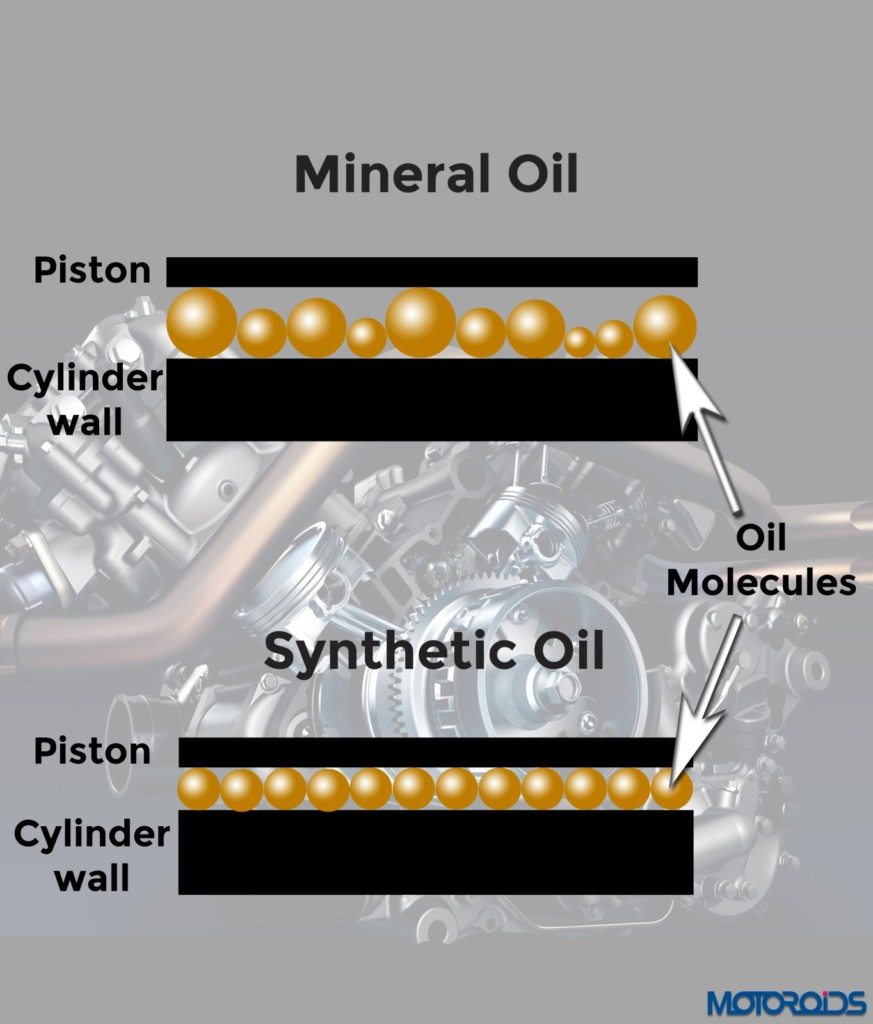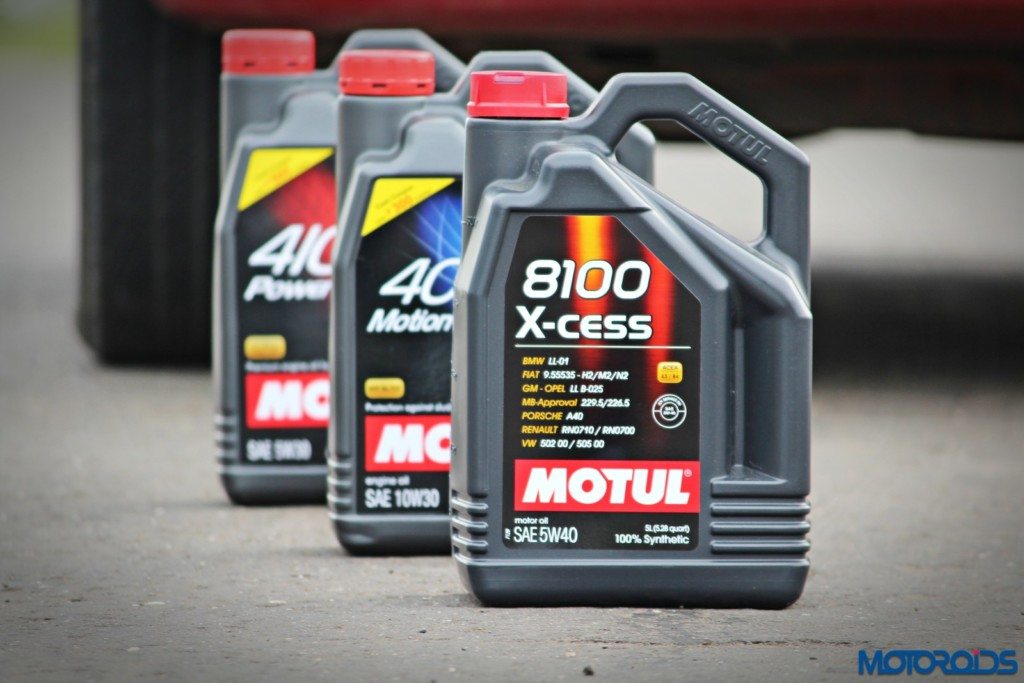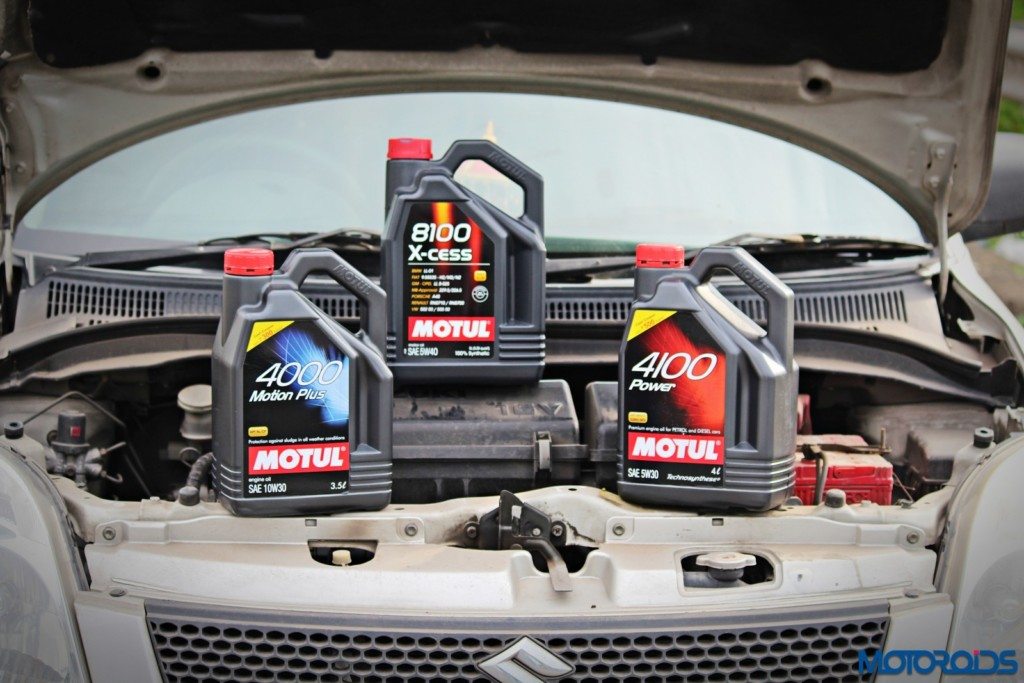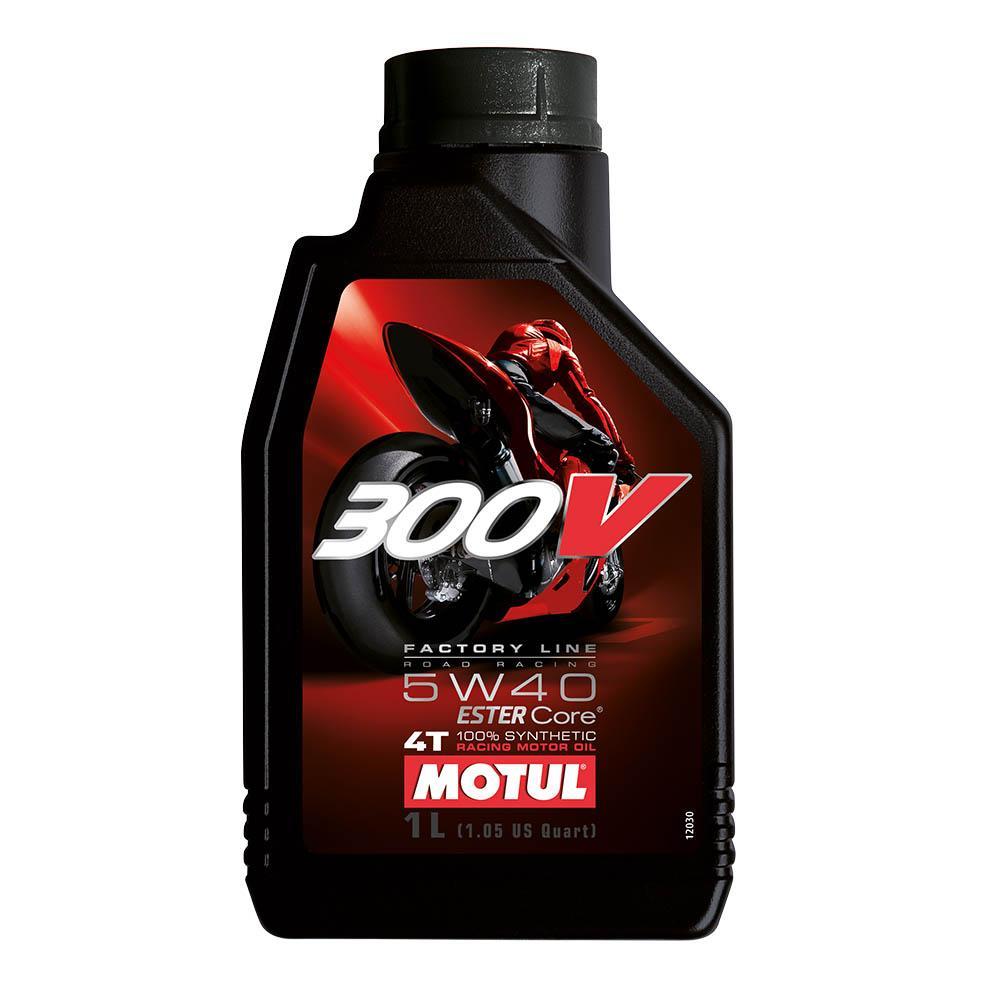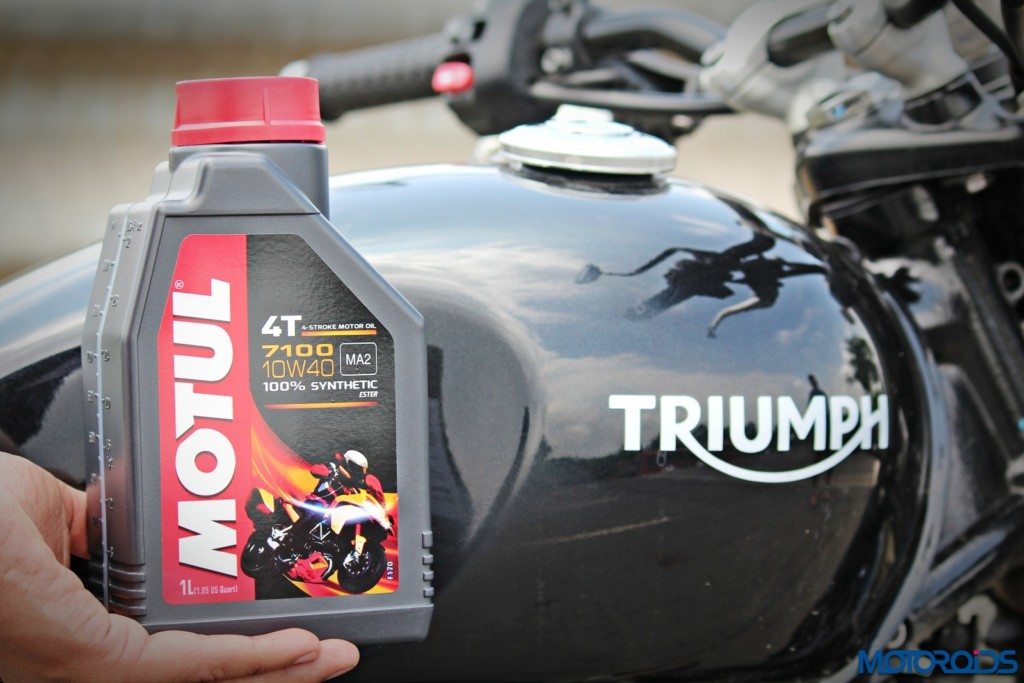Everyone who loves their car or motorcycle almost always wishes to use synthetic oil for its engine. However, the price of these oils is sometimes prohibitively high. So what’s the big deal about this expensive variety of engine oils? Are they actually as good as they’re made out to be? How are they different from your regular engine oils? Are they worth the extra money, or are you just playing in the hands of some genius marketing by lube companies?
These are some of the questions even educated and aware buyers often ask themselves while weighing the pros and cons of buying synthetic engine oils. In this instalment of “MOTUL All About Lubes”, we will explain in detail what exactly is a synthetic engine oil, its pros and cons, along with its suitability to your requirements. Let’s get going
What is synthetic engine oil? How is it different from mineral / conventional engine oil?
The first thing we need to understand is that unlike the common perception, synthetic oils are not created entirely in the lab. Both mineral and synthetic engine oils have their origins under the ground, as crude oil. While mineral oil is the purified, refined and additive-enriched form of the crude oil, synthetic oil takes a longer, more painstaking route.
Synthetic oil is refined, purified, distilled and then taken to the lab to undergo a series of chemical processes. These complex chemical processes essentially break the oil down into its very basic molecules, removing undesired substances to a very high degree. Also, breaking the oil down into its basic molecules makes it more suitable for tailoring it for specific purposes, usually hi-stress, hi-performance, hi-temperature scenarios.
The primary quality of synthetic engine oils is that their molecules are of a uniform size, unlike the varying molecule sizes of mineral oils. This essentially allows them to lubricate the grinding metal surfaces within the engine more uniformly and more efficiently. There is a whole host of other advantages associated with synthetic oils which can be further enhanced using the right additives.
Here’s a video by MOTUL, explaining the differences between mineral and synthetic oils
So what are these advantages of synthetic engine oils you’re talking about?
Synthetic engine oils outperform mineral or semi-synthetic engine oils on almost all parameters. Here’s a broad list of the advantages these oils offer
- Protection and performance under high temperature and stress
Under extreme temperatures, for example, in a high-revving car being driven during a hot summer through a desert, synthetic oils offer incomparably better protection to the engine over a mineral oil. Conventional engine oil starts breaking down, evaporates, or burns off under such extremes. This may lead to engine damage. Synthetic oils are tailored to withstand such abuse and continue to offer engine protection even under the most extreme conditions, where mineral oils would simply fail to perform.
- Cleaner engine
Mineral oils tend to pick up deposits and residues from engine components. They also form their own deposits over a period of time. This leads to formation of sludge which can reduce the efficiency and life of the engine. Synthetic oils with their uniform molecular structure, fewer impurities and superior additives offer much greater resistance to formation of sludge and facilitate a smoother, efficient and cleaner run for the engine.
- Better low temperature performance
Conventional oil thickens up with a drop in temperature. In colder regions, if a car or motorcycle hasn’t been used for some time, conventional oil offers resistance to flow until the engine warms up. This may lead to undesired friction between moving parts inside the engine, and cause damage over time. Synthetic engines flow more fluidly right from the very cranking up of the engine, even at low temperatures, offering better protection to engine.
- More suitable for turbocharged engines
Increasing engine performance while reducing cubic capacity is the newest buzzword with automakers these days. Turbochargers are playing a pivotal role in achieving this goal. However, turbochargers require more protection than naturally aspirated engines. For example the shaft inside a turbo engine can spin about thrice as fast as the speed of the pistons. This means the turbo shaft requires advanced lubes which don’t break down under such demanding conditions. Naturally, synthetic oils offer better protection for these parts.
- More environmentally friendly
Synthetic oils have lesser impurities like sulphur, unstable hydrocarbons and other compounds. This leads to cleaner emissions from the engine. Synthetic oils also aid fuel efficiency by some margin which leads to lesser emissions and a cleaner environment.
- Better engine life
As a sum total of all the aforementioned points, synthetic oils ensure that your car’s engine lasts longer. Lesser wear, better high and low temperature performance, better ability to handle abuse – synthetic oils, in one word are simply, better.
One should, however, know that not all synthetic engine oils are of the same quality and performance grade. Some synthetic engine oils are decidedly better than others. If you’re spending that extra money on synthetic oil, it better be from a reputed brand with a proven track record in the lube industry.
Ester Enhanced Synthetic Oils
As we mentioned, not all synthetic oils are created equal, some are superior to others. In this regard, the ester technology is widely considered the very best in the whole synthetic oil game. MOTUL was the worldwide pioneer in the ester technology, having used it for its 100% synthetic car oils. The vegetable-derived esters boast outstanding lubricating properties along with exceptional resistance to high temperature and anti-shear properties.
A testimony to the effectiveness of ester technology is its successful use in lubrication for more than 60 years. They are the most preferred variety of engine oils in the most extreme applications such as jet engines and aerospace. In fact ester oils have been used exclusively in jet engine lubricants worldwide for over 50 years
MOTUL’s 300V flagship range benefits from the brand’s Ester Core technology and also from the company’s longstanding presence in the most prestigious motorsport events like MotoGP.
Here’s a video about ester technology and how it benefits your car’s engine.
Should I buy synthetic oil or mineral oil?
This question depends on the kind of car or motorcycle you use, the climate you use it in and your usage pattern. For everyday cars and motorcycles, used in moderate temperatures and driven without abuse, a good quality mineral oil conforming to the manufacturer’s specification should do just fine.
If you want some added protection, but don’t want the hefty premium that fully synthetic engine oils command, semi-synthetic engine oil should work well for you.
However, if you use a high performance automobile, something on the lines of a supersport motorbike or a high revving sportscar, you’d be better off going for synthetic oil. Also, if you stay in conditions which are too hot or too cold, synthetic engine may offer tangible advantages. Finally, if you are a petrolhead, and are used to keeping the engine revs within the power-band for most times, synthetic oils would offer better engine performance and protection for your machine.
We hope this exhaustive feature on synthetic engine oils answered all your queries about this superior grade of oils. If, however, you have any further questions about synthetic oils, shoot away, and we’ll have them answered by the experts at Motul.

